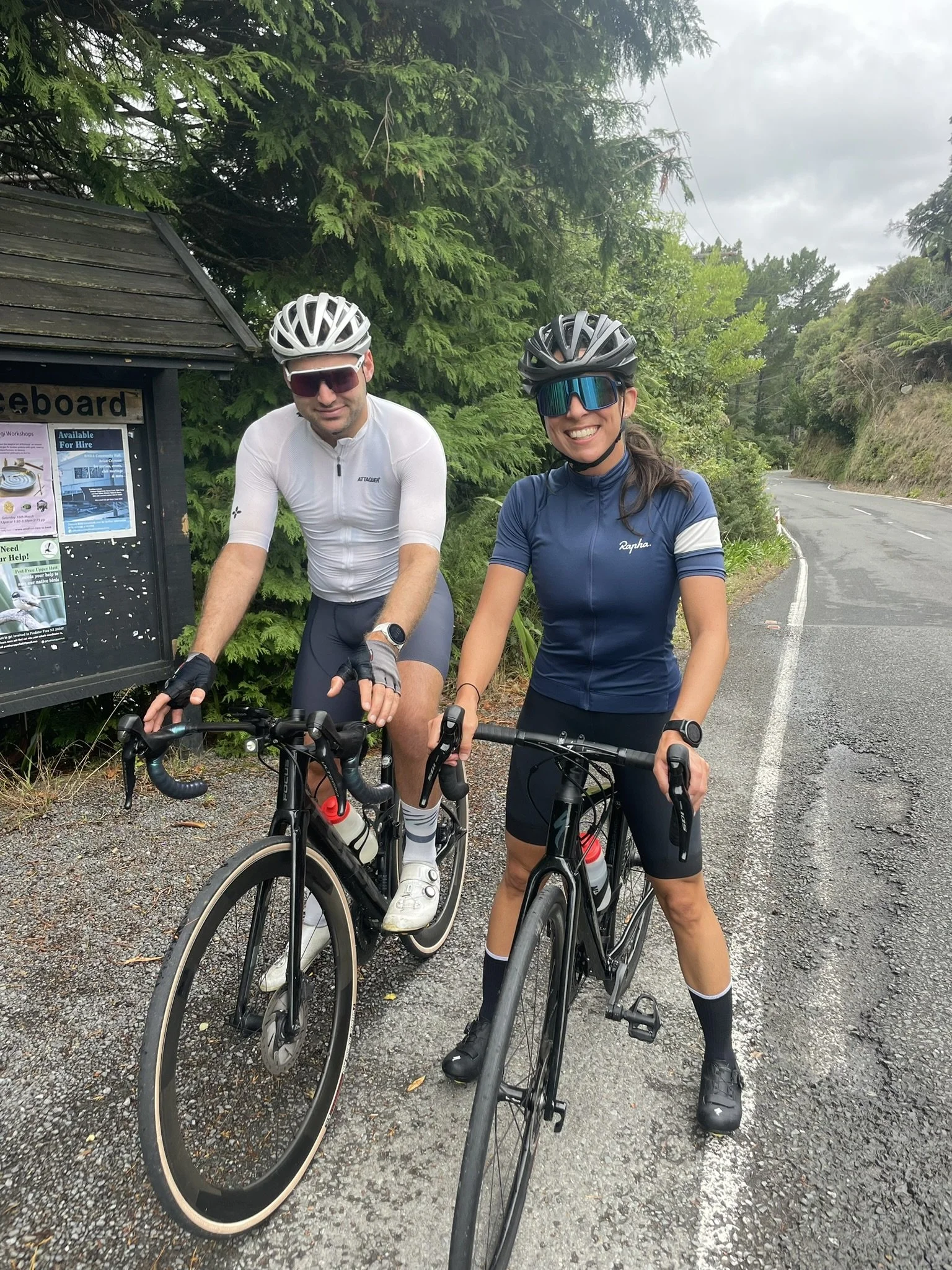How to Balance Triathlon Training with a Busy Life
Yes, you can train smart, race strong, and still have time for your job, family, and sanity.
Let’s face it triathlon is time-consuming. Swim, bike, run, strength work, recovery… it can feel like a second full-time job. Add in work, family, social life, and sleep, and suddenly training can feel overwhelming.
But here's the good news: you don't have to do it all to be a successful triathlete. With smart planning, flexibility, and a little grace, you can train effectively without burning out or neglecting the other important parts of your life.
At Hive Endurance, many of the athletes we coach have careers, partners, kids, and hectic schedules. Here’s how we help them strike that training-life balance—and how you can, too.
Quality Over Quantity
One of the biggest misconceptions is that you need to train 15+ hours a week to be “legit.” You don’t.
Focus on intentional, structured sessions instead of just racking up junk miles.
Each workout should have a purpose whether it's endurance, intensity, technique, or recovery.
A 45-minute focused session is often more effective than a 90-minute unfocused one.
Top tip: Consistency beats volume. 6–8 hours of quality work weekly can produce strong results for many age-groupers.
Have a Flexible, Realistic Plan
Life doesn’t always care about your training schedule. The key is planning for flexibility, not perfection.
Use a weekly training plan that adjusts to your work and family demands.
Move workouts around if needed, it's OK to swap days or combine sessions.
A missed session doesn’t mean you’ve failed. Let it go and move forward.
Top tip: Talk to your coach (or your calendar!) at the start of each week to map out a plan that actually fits your life.
Train Early or Stack Sessions
Mornings are gold for busy triathletes; fewer distractions, fewer excuses, and you start the day with a win.
Try early swims or trainer sessions before work.
Use your lunch break for short runs or strength work.
Double up with brick sessions (bike + run) to train more efficiently.
Top tip: Consider the “micro session” approach; 30-minute workouts are still valuable and better than skipping entirely.
Include Your Family Where You Can
Triathlon can feel isolating, but it doesn’t have to be. Involve your partner and kids when you can.
Do your long run while your kids are at sports practice.
Use the indoor trainer at home while dinner’s in the oven.
Plan training around family time; early mornings, post-bedtime, or while they’re busy with their own hobbies.
Top tip: Communicate your training goals with your family and be willing to compromise when needed.
Say No to the Comparison Game
You’re going to see people on Strava logging 20-hour weeks. Ignore it.
Everyone’s juggling different priorities.
Your race, your goals, your life. Focus on your journey.
More training isn’t always better. Smart training is better.
Top tip: Celebrate your own wins, even if they look smaller on paper.
Plan Rest and Recovery Like You Plan Workouts
Rest days aren’t lazy, they’re training. Skipping them is like skipping a workout.
Schedule at least one full rest day per week.
Prioritise sleep and nutrition, especially during big blocks.
Don’t cram sessions just to “tick the box”. Your body needs downtime to adapt.
Top tip: If you’re exhausted, stressed, or overwhelmed, rest is almost always the best choice.
Get a Coach or Program That Understands Real Life
You don’t need a military-style plan built for pros. You need one that bends with your real-world demands.
A good coach can help you train smarter, not harder.
Look for someone who listens, adapts, and knows how to maximise limited time.
You’ll spend less time guessing and more time progressing.
Pro tip: At Hive Endurance, we’re real people too. We know life’s messy, and we coach accordingly.
Final Thoughts
Balancing triathlon training with a busy life isn’t about being perfect. It’s about being consistent, strategic, and kind to yourself. You won’t hit every session, and that’s OK. What matters is showing up when you can and making it count.
With the right approach, you can still crush your goals while being present for the rest of your life.
Need help making triathlon fit your life, not the other way around? Let’s chat. We’ll help you train smart, race strong, and stay sane along the way.

